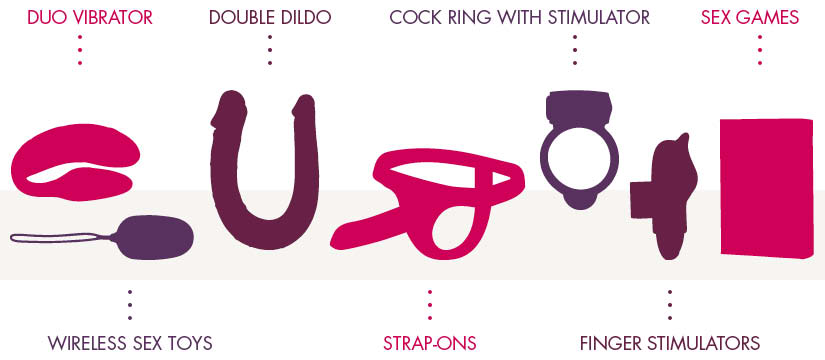The sex repulsed asexual experience is real, valid, and varied. Some people feel intense discomfort at the idea of sexual contact. Others feel fine talking about sex in the abstract but dislike sexual touch, imagery, or innuendo directed at them. Many move along this spectrum over time. This guide keeps language simple and practical. You’ll learn what the label can mean, how to talk about it with partners and friends, how to set boundaries without guilt, and how to build a life that actually fits you.
What “sex repulsed asexual” can mean (and what it doesn’t)
“Asexual” is an umbrella for people who experience little to no sexual attraction. “Sex repulsed” describes a feeling response to sex—discomfort, disgust, aversion, or simply “no, not for me.” That feeling may be constant, situation-specific, or change with stress, hormones, or safety. Being sex repulsed does not mean you are broken, immature, prudish, traumatized, or incapable of love. It means your body and brain send a strong no to sexual activities, and that no deserves respect.
Some people are sex-neutral or sex-favorable asexuals. Some are aromantic, some are not. Labels help you communicate your lane, not trap you in it.
Attraction, action, and aversion are three different sliders
It helps to think in sliders, not boxes.
- Attraction slider: sexual attraction low or absent; romantic attraction may be present or absent.
- Action slider: what you do or don’t do. Some sex repulsed aces never engage in sex; others try once and confirm “no”; a few may choose specific acts for a partner even while feeling neutral or negative themselves.
- Aversion slider: the emotional/sensory reaction to sex or sexual content. This may be mild (“not my thing”) or strong (nausea, panic, intrusive images).
Your exact settings are yours. They may shift. You don’t owe anyone an explanation when they do.
Common signals that “sex repulsed” might fit
- You feel tense, nauseated, shut down, or irritated when sexual touch is suggested or attempted.
- Sexual scenes in media feel stressful, not exciting.
- Sexting, explicit jokes, or sexual compliments directed at you feel intrusive.
- You dread “the talk” with new partners because you expect pressure or disbelief.
- You enjoy romance, intimacy, or cuddles—as long as they don’t slide toward sex.
- You want companionship, cohabitation, or a future together, but not sexual contact.
If that sounds familiar, the label can be a helpful shortcut for communication and boundary-setting.
You still deserve closeness, intimacy, and love
Sex is one path to closeness, not the only one. Many sex repulsed asexual people build deep, happy bonds through:
- Physical affection that isn’t sexual: hand-holding, cuddling, sitting back-to-back, hair stroking, massage with clear non-sex boundaries.
- Rituals of care: tea together at night, shared walks, co-op games, reading in the same room, quiet errands.
- Words and praise: love letters, voice notes, “I’m proud of you,” “I see how hard you tried today.”
- Shared life plans: co-parenting through adoption or not parenting at all, shared pets, creative projects, travel.
You get to define intimacy on your terms and expect partners who respect those terms.
Scripts for saying it out loud (short, kind, effective)
You don’t need a lecture. You need one or two sentences that feel safe in your mouth:
- “I’m a sex repulsed asexual. I don’t want sexual activity, but I do want closeness and partnership.”
- “I’m not comfortable with sexual touch. I’m happy to cuddle, hold hands, and build something loving if that fits you.”
- “Sex is not a part of my life. If that’s a dealbreaker, I understand. Thank you for being honest.”
If someone argues or tries to debate your identity, that’s useful data: they’re not your person.
Boundaries are not negotiations
A boundary is what you will or won’t do. It’s not a criticism of anyone else. Try framing it as a choice about you:
- “I won’t have sex.”
- “Please don’t send sexual content.”
- “I want cuddles, but no grinding, no explicit talk, and no nudging the boundary later in the night.”
Healthy people appreciate clarity. Unhealthy people test rules. Pay attention to who you’re dealing with.
Touch menus keep everyone calm
A simple “yes / maybe / no” menu avoids guesswork:
Yes: hand-holding; cuddling with clothes on; forehead kisses; scalp massage; spooning for sleep.
Maybe: back rubs under a shirt (no bra unclasp); shared shower (no sexual touch).
No: sexual touching; grinding; oral; explicit conversation about sex directed at me.
You can change your mind any day. Update the menu when you need to. Consent is current or it isn’t consent.
Friendship, romance, and “queerplatonic” fits
Not everyone wants romance. Many sex repulsed aces find home in queerplatonic partnerships (QPPs)—committed, life-sharing bonds that aren’t romantic or sexual but are deep, central, and often long-term. You can co-sign leases, raise pets, buy a house, or co-care for elders. If you want legal stability, you can use cohabitation agreements, wills, and shared finances—no romance required.
Talking with partners who aren’t asexual
Some allosexual partners (people who do experience sexual attraction) can love and thrive with sex repulsed aces. The keys are informed consent and long-term fit:
- Be honest early. Don’t “reveal” after a year.
- Ask what intimacy means to them beyond sex.
- Design a shared routine that honors you both—cuddles, dates, small gifts, acts of service.
- Consider separate bedrooms if that improves sleep and safety. Many happy couples do this for non-sex reasons too.
If sex is essential for them, you’re not compatible. That’s not a flaw. It’s logistics.
If you’re dating apps-averse, try values-first intros
Write a short, gentle line in your profile or first messages:
- “Asexual, sex-repulsed. Looking for cuddles, hikes, shared meals, and a teammate for life.”
- “Not sexual. Very affectionate. If you want a calm, cozy partnership, say hi.”
You’ll get fewer matches, and that’s good. You’ll also get better ones.
Healthcare without pressure
You deserve medical care that doesn’t assume sex. Some tips:
- Tell providers: “I’m a sex repulsed asexual person. Please avoid sexual framing.”
- Request trauma-informed care even if you don’t identify with trauma. It’s a service, not a label.
- If pelvic exams are recommended for non-sex reasons (e.g., cancer screening), ask for step-by-step explanation, extra time, smaller specula, and the right to stop immediately.
- Bring a friend or advocate to appointments. You’re allowed support.
If a provider mocks, pressures, or dismisses, switch clinics. You’re hiring them, not the other way around.
Media, social spaces, and the “mute” button
You can curate your world. Unfollow accounts that flood your feed with sexual content. Use content filters where possible. Tell friends you prefer non-explicit humor. Turn off autoplay for shows that spike into graphic scenes without warning. Your time and attention are yours to allocate.
When sex talk is part of your environment (work, school, family)
- Work: If colleagues make sexual jokes, calmly say, “Let’s keep it professional.” If it continues, document and escalate to HR.
- School: Ask for alternative projects or content warnings. You can be respectful and opt out.
- Family: “Please don’t ask about my sex life. I don’t discuss that.” Repeat as needed. If they keep prodding, shorten visits or step outside.
Boundaries become real when you enforce them with action.
If aversion connects to trauma or sensory overload
You don’t have to have trauma to be a sex repulsed asexual. Some do; some don’t. If you suspect trauma, sensory processing differences, dysphoria, chronic pain, or OCD worsen aversion, a competent therapist (ace-aware, consent-focused) can help you build coping tools without pushing you toward sexual behavior. Therapy should support your boundaries, not “fix” your asexuality.
Pleasure is not only sexual
Many sex repulsed aces love sensual comfort that is not sexual: weighted blankets, scalp oiling, warm baths, hand creams, soft fabrics, aromatherapy, music in the dark, long hugs, back scratches. You can build a care menu that feeds your nervous system and avoids your no-go zones. That’s allowed.
Community helps
Online or local ace groups can offer language, solidarity, and practical advice. You can lurk. You can share. You can leave and return. There’s no attendance grade. Surround yourself with people who think your “no” is normal.
If someone tries to bargain with your identity
These are red flags:
- “You just haven’t met the right person.”
- “Maybe you’re broken; I can fix you.”
- “We’ll just try and see.”
- “If you loved me, you’d do it.”
The correct response is distance. You don’t need to debate the value of your boundaries. Just go.
Building a life blueprint that fits
Pick three pillars and design around them:
- Home: quiet, safe, comfortable; maybe separate bedrooms; cozy seating for cuddles.
- People: one partner, a QPP, a tight friend circle, or chosen family.
- Purpose: work, art, pets, volunteering, study, faith, or fun.
When your life honors who you are, the urge to “prove” anything fades. Peace arrives.
Relationship agreements that respect asexual boundaries
If you form a partnership with someone who has sexual needs you cannot or do not want to meet, the only ethical option is informed and explicit agreements. Some choose monogamy without sex. Some design non-sexual open arrangements with guardrails. Some part ways kindly. Whatever you choose, document it in plain language. Revisit it quarterly. Consent here is a living thing.
A note on labels: keep the ones that help, drop the rest
“Sex repulsed asexual” might help you right now. Later, you might prefer “asexual,” “ace-spec,” “gray-ace,” “aroace,” “sex-indifferent,” or no label at all. Language is a tool, not a cage. Use what lowers your stress and increases clarity.
Quick scripts for daily life
- Declining a date: “Thank you for asking. I’m not pursuing sexual or romantic relationships.”
- At a party with sexy talk: “I’m stepping out for air—catch you later.”
- Friend overshares sexually: “I’m happy to hear about your relationship wins. Please skip the sexual details.”
- Partner check-ins: “I’m comfy with cuddles tonight. Please don’t steer toward sex.”
Short, calm, repeatable lines save energy.
If curiosity changes, your consent still leads
A few sex repulsed aces become curious later. That’s permitted. If you explore, explore slowly with clear exit ramps and non-judgmental partners who can stop the second you ask. If the answer remains “no,” you learned something useful: your no is trustworthy.
Internal link (placed once, naturally)
If you’re reading to support a partner who is not sex repulsed or not asexual, and you want to understand how many men experience comfort, praise, and pacing cues in intimacy (even outside of sexual contexts), this gentle explainer can help you calibrate non-sex affection and build confidence together: what do guys like during sex. Read with care; take only what’s relevant to your relationship and skip anything sexual that doesn’t fit your boundaries.
A calm checklist you can use tonight
- Write a two-sentence identity script.
- Draft a yes/maybe/no touch menu.
- Mute three accounts or shows that spike sexual content.
- Put water, a cozy throw, and your favorite non-sex comfort (book, music, tea) by the couch.
- Send one message to a trusted person: “Here’s what I’m comfortable with; thanks for supporting me.”
Small steps create safety. Safety creates ease.
Frequently Asked Questions (FAQ)
Is being a sex repulsed asexual the same as having trauma or a medical issue?
No. Some sex repulsed aces have trauma or medical conditions; many do not. Asexuality is a valid orientation. If health concerns exist, treat them; your orientation is still yours.
Can sex repulsion change over time?
Yes. Stress, hormones, dysphoria, sensory needs, medications, or life context can shift repulsion. You don’t have to “explain” changes to keep your boundaries.
Can I be sex repulsed and still enjoy romance?
Absolutely. Many aces love romance, dates, and affectionate rituals—without sexual contact. Define romance your way.
Will anyone want to date me if I’m sex repulsed?
Yes. Fewer people, but better matches. Aim for values alignment. You are not “less dateable.” You’re specific.
How do I tell someone new?
Early, kindly, and briefly. “I’m a sex repulsed asexual person and don’t want sexual activity. If that works for you, I’d love to keep getting to know you.”
What if a partner says sex is non-negotiable?
Believe them. You’re mismatched. It’s kinder to part ways than to bargain with your wellbeing.
Can I still have children?
If you want to parent, options include adoption, fostering, or assisted reproduction without sex. Parenting and sex are separate topics.
How do I handle sexual scenes in media with friends?
Ask for a heads-up, use the bathroom break, look at your phone discreetly, or suggest content with fewer explicit scenes. Real friends accommodate.
What if people accuse me of being prudish or childish?
That’s their bias speaking. You can ignore, correct once, or walk away. Your boundaries do not require debate.
Is masturbation always off the table for sex repulsed aces?
Not necessarily. Some are repulsed by all sexual activity, including solo. Others are repulsed by partnered sex but neutral or indifferent about solo touch. Your lane is your lane.
How do I find community?
Look for asexual forums, group chats, or local meetups. Lurk if you like. Share only when safe. Community should lower anxiety, not raise it.
What if I feel guilty saying no to someone I love?
Love without consent isn’t love. Guilt often fades when you see a partner relax into clarity—either aligning with your boundary or acknowledging a mismatch.
Can therapy help without pushing sex?
Yes. Seek ace-aware, consent-centered therapists. Interview them first: “Can you support non-sex intimacy goals?” If they hesitate, keep looking.
What’s the single best tip for daily peace?
Build a life where you rarely need to defend your boundary. Curate media, write scripts, choose aligned people, and design routines that feel safe. Alignment beats argument.
Final words
Being a sex repulsed asexual person is a valid way to be human. You are not behind. You are not broken. Your boundaries protect your peace—and your peace is valuable. Speak plainly. Choose people who celebrate your clarity. Build routines that comfort your body and mind. You deserve relationships, rituals, and a future that fit the exact shape of your no and the full warmth of your yes.



![Most Powerful Bullet & Mini Vibrators [Tested in 2025]](https://couplepleasure.com/wp-content/uploads/2025/10/image-11-2.jpeg)
